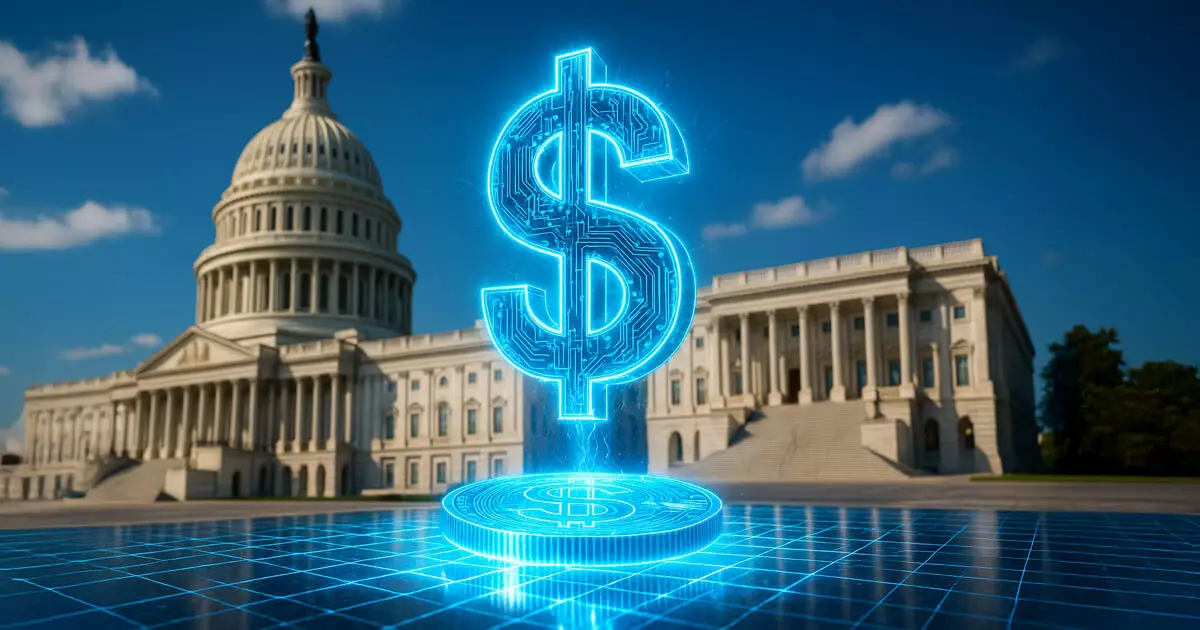In a political landscape that often feels more divided than ever, Senate Republicans have made a significant push for what they term the GENIUS Act, aimed at establishing a comprehensive federal framework for stablecoins. With celebrations of innovation vibrating throughout the chambers, this legislation appears poised to leapfrog into a potential floor vote shortly before Memorial Day. Is the rush to regulate driven by a genuine desire for safer digital finance or merely political grandstanding? Whatever the case, one thing is clear: the stakes are high, and the implications of this bill could ripple through the economy.
The Bipartisan Push: A Mixed Bag
Supported by notable figures like Senators Bill Hagerty, Cynthia Lummis, and Tim Scott, the GENIUS Act aims to offer legal clarity surrounding stablecoins—a burgeoning segment of the digital asset market that has reportedly eclipsed a staggering $241 billion in capitalization. While it’s commendable to see bipartisan momentum in a Senate so often plagued by stalemates, this measure must be scrutinized for both its immediate promise and potential long-term consequences.
The Act proposes a compulsory 1:1 backing with cash or Treasuries and brings large issuers under Federal Reserve oversight. Here again lies a paradox; while regulatory oversight is needed, an overly stringent framework may stifle innovation. The focus should not merely be on compliance but on fostering an environment that is conducive to growth and progress. If we ramp up regulations while stymying entrepreneurial spirit, we risk consolidating power in the hands of a few established players, leaving smaller innovators in the dust.
Opposition: A Concern for Consumer Safeguards
The pushback against the GENIUS Act—led primarily by progressive Democrats and certain banking organizations—raises valid points. Senator Elizabeth Warren’s alarmist rhetoric about “big tech” potentially monopolizing the issuance of stablecoins is not entirely unfounded. The warning about privatized digital cash encroaching on traditional banking is particularly poignant and warrant serious consideration.
Community banking organizations echoing similar sentiments argue that this could further endanger the traditional deposit structures that serve as the backbone of American finances. If these companies are allowed to issue their own stablecoins unregulated, the risks might outweigh the benefits. The flexibility that these stablecoins promise in harnessing technological advancements cannot come at the cost of consumer security and financial stability.
A Political Gamble: Crossing the Aisle
Despite their control over the Senate, Republicans need a minimum of seven Democratic votes to achieve the 60-vote threshold required. This precarious balance suggests that the bill, albeit popular among certain Republicans, faces significant hurdles ahead. Even previously open-minded Democrats like Kirsten Gillibrand and Mark Warner must tread carefully, balancing the need for innovation with their party’s cautious stance on financial regulation.
The political ambition behind the GENIUS Act is considerable, as Republicans frame it as a means to safeguard U.S. monetary dominance. However, if partisan divisions are showcased in the Senate, the far-reaching benefits of digital currency—a world where America doesn’t lag behind in financial technology—may slip away. We may find ourselves at the mercy of foreign companies thriving in a regulation-light helix, catalyzed by the shortcomings of U.S. legislation.
The Path Ahead: Navigating Complex Terrain
As Senate leaders prepare for what could be a historical vote, the future of the GENIUS Act remains uncertain. Even if it clears the Senate, reconciling differences with the House’s more stringent version introduces another layer of complexity. Federal Reserve officials have expressed support for regulated tokens, but the specifics of those regulations remain muddled. Will they strike a balance that promotes financial growth without exposing us to new vulnerabilities?
This legislation could serve as a landmark moment in digital finance. Nevertheless, it should serve as a catalyst for open dialogue, ensuring that we engage all stakeholders. As lawmakers wrestle with the ambitions and fears surrounding stablecoins, the question remains: are we prepared for a revolution in digital assets, or are we merely setting ourselves up for failure with regulatory complexities masquerading as safety?

